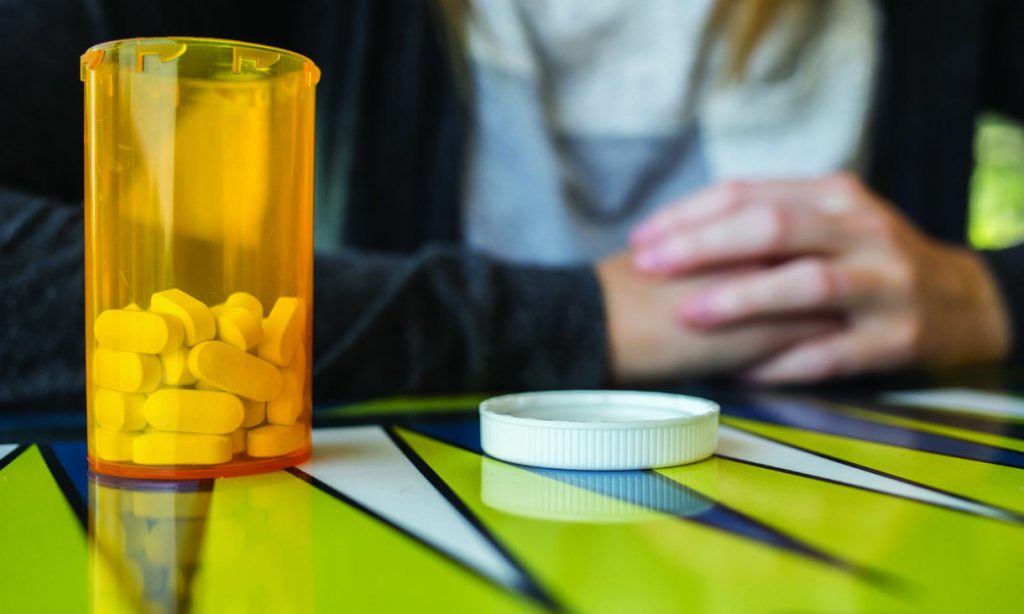
The University of Missouri-Kansas City is leading the fight against opioid misuse. With a grant from the Cardinal Health Foundation, the UMKC School of Pharmacy is partnering with the Missouri Pharmacy Association and St. Louis College of Pharmacy to improve prescribing practices for pain management throughout the state of Missouri.
The $120,000, two-year grant was awarded July 1 as part of the Cardinal Health Foundation’s new, nationwide Optimal Prescribing in Pain Management initiative. The initiative pairs schools of pharmacy with state pharmacy associations to develop strategies to drive the optimal prescribing of pain medications and the appropriate use of opioid medications in their states. In addition to Missouri, the other collaborations are from Maryland, Ohio, North Carolina and Wisconsin.
The Cardinal Health Foundation, in partnership with the National Alliance of State Pharmacy Associations (NASPA) and the American Association of Colleges of Pharmacy (AACP), is the national convener of the program.
“We are honored to be a leader in this initiative, and feel fortunate we can canvas such a big area of the state,” said Heather Lyons-Burney, clinical assistant professor at the UMKC School of Pharmacy and the principal investigator on the grant. The UMKC School of Pharmacy features three campuses: in Kansas City, Columbia and Springfield.
“Opioid misuse is not just an urban problem or a rural problem, it’s an everywhere problem. One thing is not going to fix this. We have to attack it from different angles.”
Using the grant funds, Lyons-Burney will lead a task force that develops a “Training of Trainers” curriculum using current guidelines, evidence-based practices and proven intervention strategies for optimal prescribing practices. Following the curriculum development, faculty will deliver the program to pharmacists across Missouri through live trainings and virtual conferencing software. Trained pharmacists will then use strategies learned from the curriculum to educate prescribers on optimal pain management to improve patient health.
The goal is to help reduce long-term opioid dispensing rates in Missouri, increase the use of the prescription-drug monitoring program by pharmacists and health-care providers to identify those at risk and strengthen relationships between health professional organizations in the state through the support of joint educational and legislative efforts.
“We are grateful for our partnership with the Cardinal Health Foundation, the Missouri Pharmacy Association and St. Louis College of Pharmacy,” said Russell Melchert, dean of the UMKC School of Pharmacy. “We have expert faculty leading the way.”
UMKC has ongoing experience with preventing and assessing opioid misuse at national and local levels